Fifteen hours of sirens: How Ukrainian Chernihiv survives relentless Russian attacks
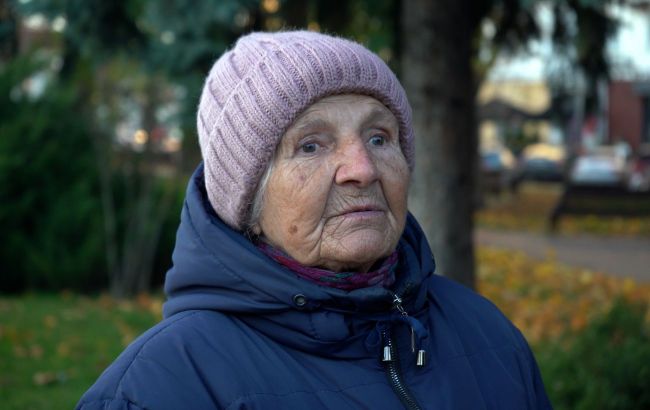 Resident of Chernihiv (all photos: RBC-Ukraine)
Resident of Chernihiv (all photos: RBC-Ukraine)
The northern border Ukrainian city of Chernihiv has been under constant Russian attacks for several months now. Blackouts, no heating or water — this has become everyday life for the city's residents. Russian forces regularly shell the city, trying to destroy its energy infrastructure and make life unbearable. RBC-Ukraine went to Chernihiv and reports on how people survive amid blackouts and drone strikes there.
"A week ago, we had a complete blackout — the whole city went dark. No internet, no connection — it was impossible to call anyone or even send a message. There was nothing. Only generators were working across the city, and the Invincibility Points stayed open so people could go there and charge their phones," says resident Oleksandr.
While speaking with him, we naturally recall how, at the start of the full-scale invasion, Chernihiv became one of the first Ukrainian cities to be surrounded by Russian troops. In February-March 2022, the occupying forces tried to break through Chernihiv on their way to Kyiv, shelling residential areas, hospitals, and schools. For several months, the city was effectively cut off from the rest of the country — bridges over the Desna River were destroyed, and there was no electricity, water, or gas. But despite it all, Chernihiv survived.
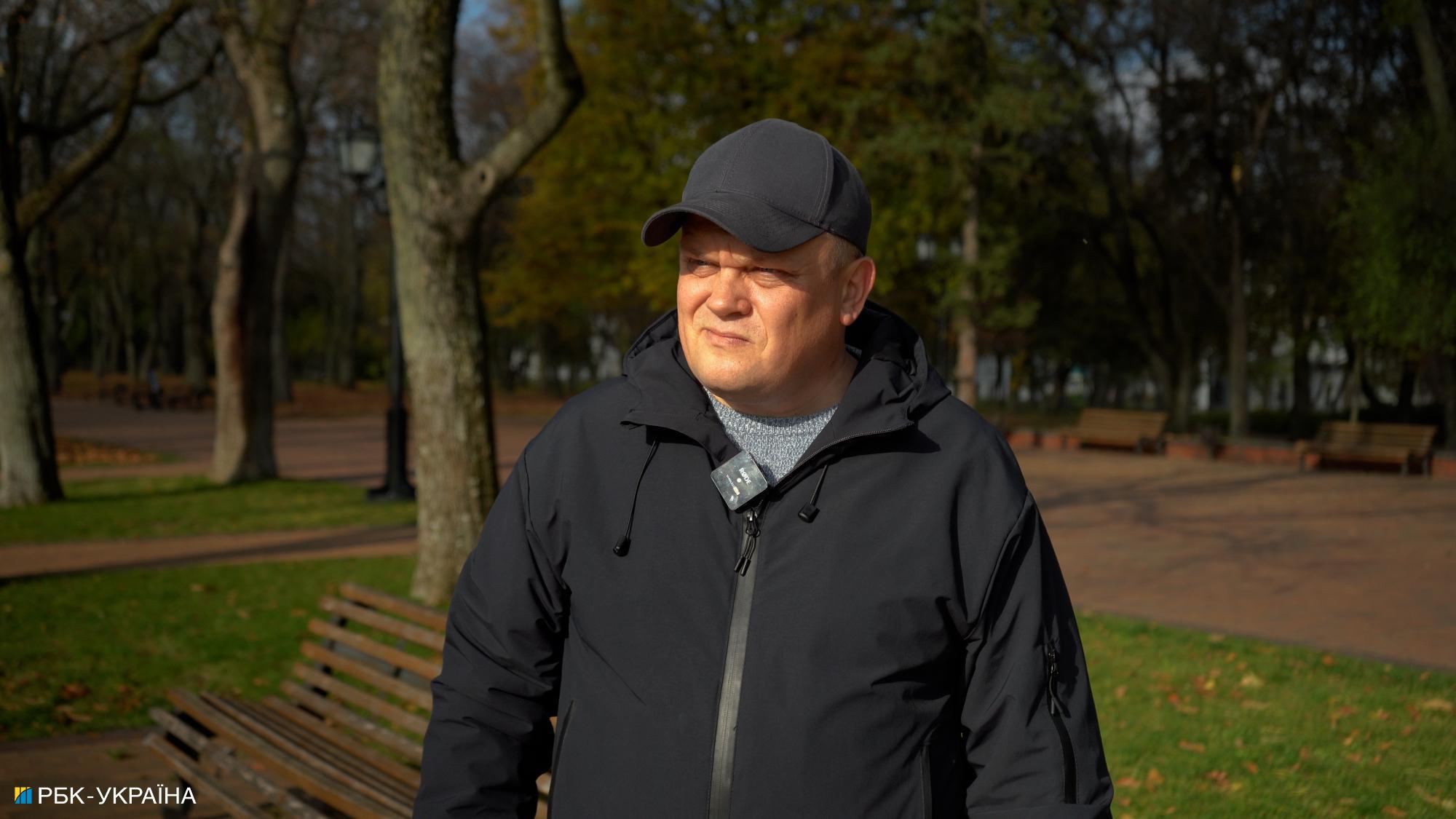
Oleksandr, resident of Chernihiv (Photo: RBC-Ukraine)
Locals recall those days vividly — how utility workers kept repairing the damage under shelling, and rescuers pulled people out from under the rubble. Volunteers delivered water to neighborhoods after the water supply was destroyed, and shops reopened as soon as the danger passed. Oleksandr remembers how, in the early months of the siege, city residents practically moved into basements.
"Water was gone, everything was gone. There was no gas either, you couldn’t even use the toilet — people just did everything outside. We tried to cross the bridge and escape, despite the danger. We drove through fields and lived for a while in Khmelnytskyi. Later, my wife and son went abroad, but I stayed."
The city still bears the scars of those early months of the full-scale war. On its streets and avenues, you can still see the markers of Russian crimes — the shattered hotel symbolically named Ukraina, destroyed by a missile, and the remains of the drama theater hit by an Iskander missile. Nearly 200 residents were injured in that strike.
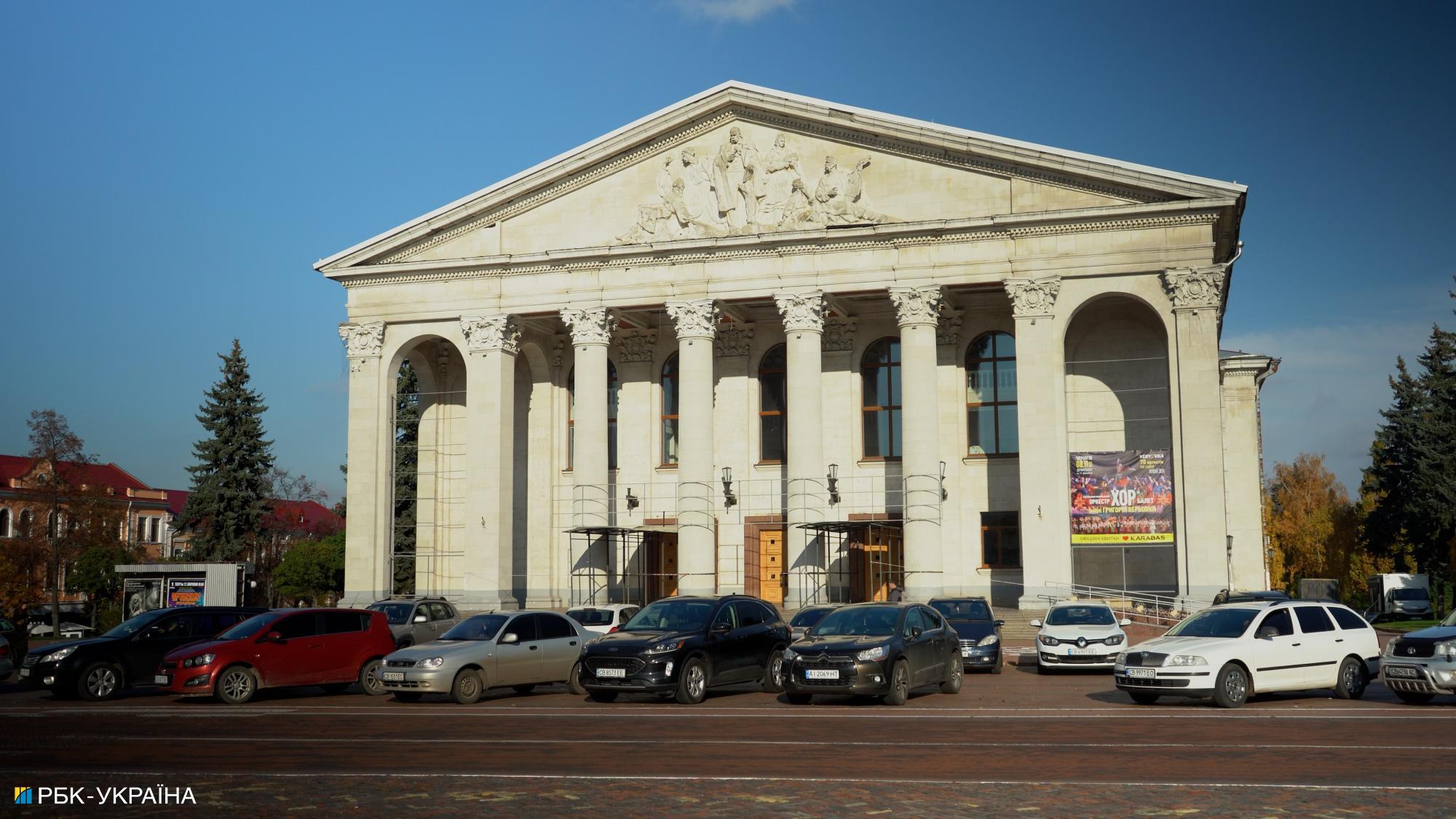
Chernihiv remains scarred by the brutal early months of Russia's full-scale assault (Photo: RBC-Ukraine)
But the Russian government has a cruel imagination when it comes to making Ukrainians' lives harder. So today, Chernihiv — like many other Ukrainian cities — endures not only shelling, but constant darkness. And in that darkness, people continue to live.
15 hours of air raids
Russians are destroying the city's energy infrastructure with demonstrative cruelty—simply because they can reach it. Chernihiv suffered one of its most massive blackouts at the end of October 2025. After yet another strike on critical facilities, nearly the entire city was plunged into darkness. Residential neighborhoods, stores, transportation, and even parts of hospitals were left without power.
Locals say Invincibility Points quickly opened across the city—places where people charge their phones, heat water, and warm themselves. Chernihiv is Ukraine's northernmost regional center, so both autumn and winter are harsh here.
While residents once again stock up on flashlights and matches, public utilities switch power systems to generators—but try to save fuel. At night, the city disappears into darkness. Only faint flickers of light shimmer in apartment windows where people turn on lamps or phone flashlights.
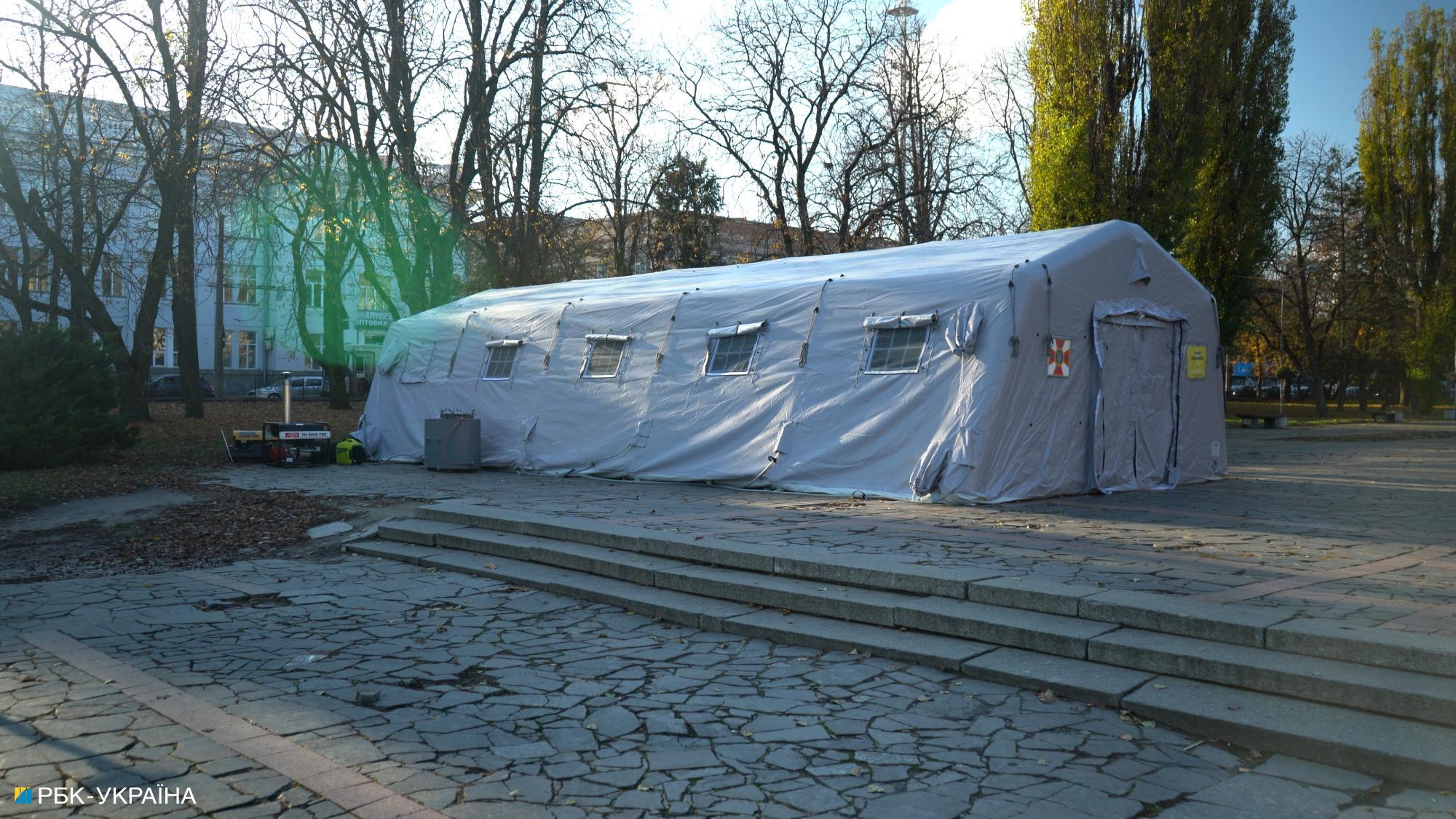 Invincibility Point (Photo: RBC-Ukraine)
Invincibility Point (Photo: RBC-Ukraine)
To the frequent blackouts, add the constant buzz of Shahed drones. Over the months, it's become so familiar that many locals barely react anymore.
We're walking through a park when another drone flies overhead. Someone tries to shoot it down; a burst of machine-gun fire rings out nearby.
On a bench near the overlook, a woman sits staring pensively at the city skyline. The noise of the Shahed and the gunfire don’t make her flinch.
We approach another woman walking through the park with her friend. Iryna agrees to talk. She keeps trying to smile, but her eyes betray exhaustion.
"There've been so many Shaheds lately. Day and night. We're holding on, but it's hard, you know? They hit the thermal power plant—there's still no heating. Power cuts, water shortages. Schools and kindergartens aren't working. Everything's online."
Once, a Shahed flew right over her head as she was leaving a soldier's funeral. The drone nearly clipped the cross above St. Catherine's Church, where people were saying goodbye to the fallen.
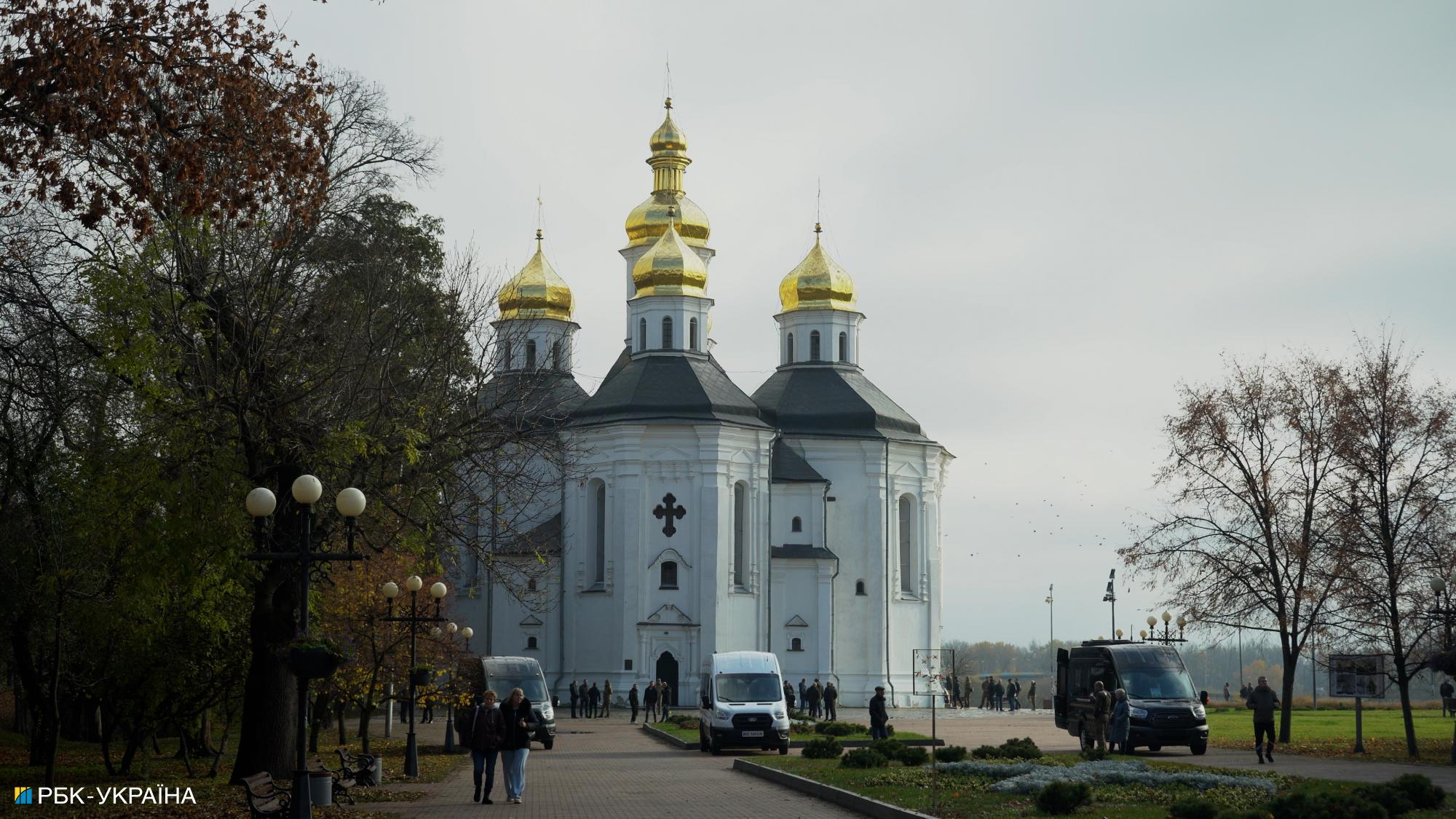
The sound of flying drones has become so routine that most locals hardly even notice it now (Photo: RBC-Ukraine)
"Every day, every night. The air raid alerts never stop—look, it's constant. Fifteen hours of alert a day. It's very hard," Iryna says.
We saw a drone above that same church on our first day in Chernihiv. The Shahed flew so low we could see its body. There's a feeling of helplessness—no time to hide. Locals live like this daily: hours in basements, then off to work under the familiar drone of engines in the sky. Some say they no longer even notice when the "all clear" sounds.
"It's terrifying. Life is very hard. We barely sleep. Shaheds come every day, every night. The shelling's got much worse since August. A year ago, it was calmer. We're a border region—that's why they target us," Iryna adds.
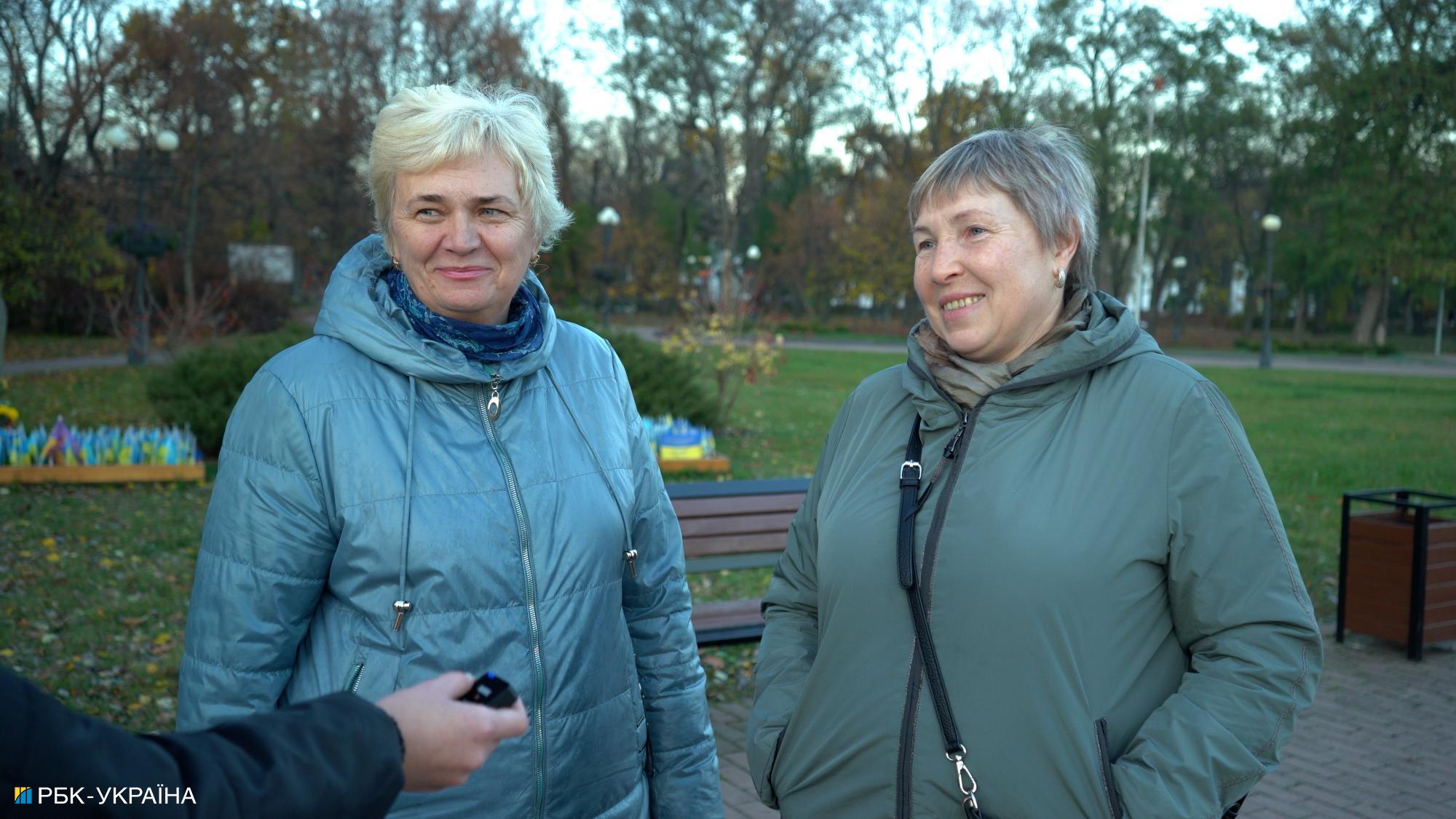 Iryna and her friend (Photo: RBC-Ukraine)
Iryna and her friend (Photo: RBC-Ukraine)
Some residents whisper their fears: that the intensified attacks mean Russia plans to advance on Chernihiv (though available intelligence refutes this). Back in the summer, Russian social media did claim their army was preparing to break through the border from the Bryansk forests. There are also rumors that drones striking Moscow are launched from the Chernihiv region. But these are just guesses and urban legends. In reality, Russians are simply methodically destroying Chernihiv.
'You're not scared, because you're going home'
Despite everything, life in Chernihiv hasn't stopped. Cafés on the central square keep running on generators and candlelight, while utility workers repair damaged power lines. After each new strike, the city slowly pulls itself back together and starts another day.
"Drones flew again today — they shot some down. At night, they hit hard. So we live in fear. Every night I go sit in the hallway, behind two walls — it's safer there. It's very loud. But we have to hold on. The neighbors are good people, we help each other, we're close. We endure,” says resident Zhanna Fedorivna.
Many locals were forced to flee their homes at the start of the full-scale invasion. Yet despite the constant shelling and difficult living conditions, people are returning home.
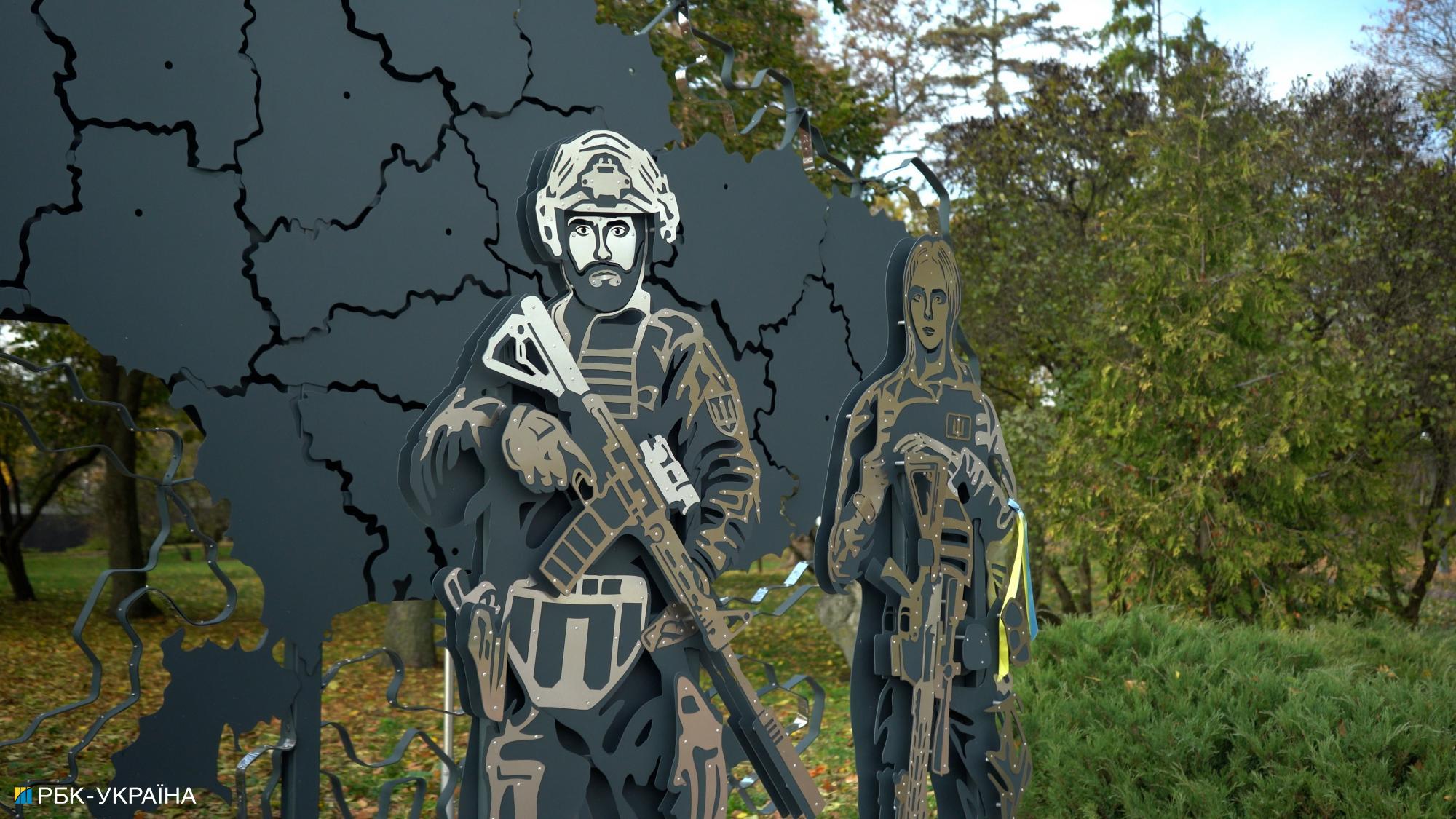
Despite constant attacks, Chernihiv keeps running on generators and resilience (Photo: RBC-Ukraine)
One of them, Liudmyla, can't help but smile as she says:
"I wasn't afraid to come back — on the contrary, I really wanted to. When you're traveling from Germany back to Ukraine, your heart feels lifted. Of course, there's some fear, but you're not scared, because you're going home.”
While we were in Chernihiv, around twenty drones were recorded flying over the city. Some struck the central districts, others hit energy facilities. Locals share addresses, checking to make sure everyone's alive. As the sun sets, Chernihiv will sink into darkness again — but tomorrow, light will return, and the old ladies will head to the market to sell sea buckthorn.
"There's this small market near the repair plant," Iryna says. "Old ladies sit there selling their sea buckthorn and counting the Shaheds flying overhead. 'That's the eleventh one!' they say. I'm stunned — Ukraine really is unbreakable."

